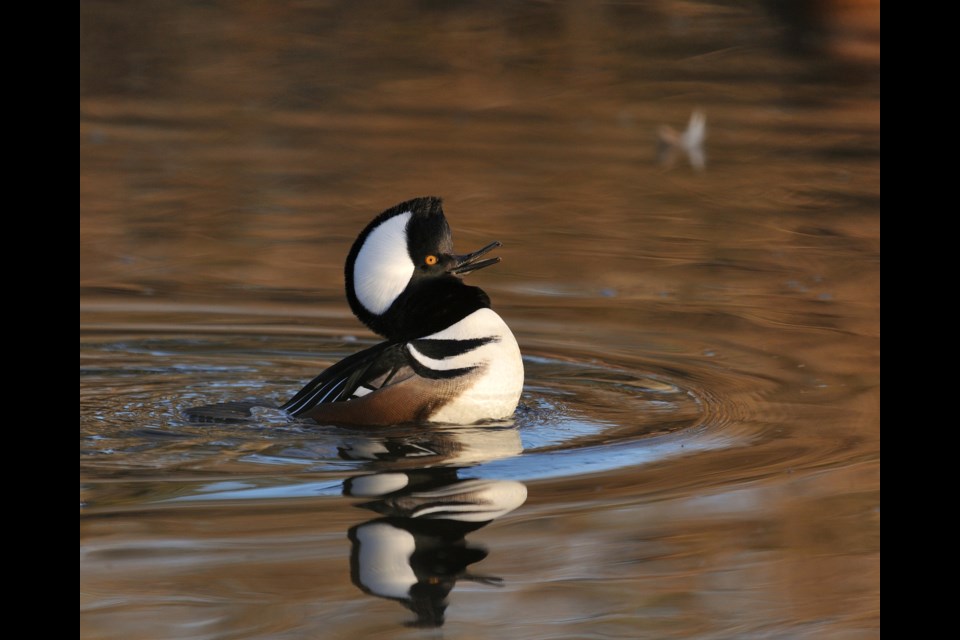In the winter, when local freshwater sloughs and ponds freeze over, most of the ducks head to more marine and brackish habitats offshore where salinity and water movement keep ice from forming. Not all of them do this, though.
Walking around a quiet pond that has even a small sliver of open water along the shoreline, it can be quite startling to come across a group of noisy Hooded Mergansers in the middle of their winter courtship activities.
Mergansers are fish-eating ducks and prey minnow species such as Three-spined Stickleback gravitate to the ice-free areas of local ponds during a freeze-up. There are probably a hundred or so Hooded Mergansers in the Ladner area every winter in quiet backwater areas with lots of woody debris along the shorelines.
Courtship of “Hoodies” usually takes the form of several of the dapper, black and white males and at least one or more drab, brown and grey females, all swimming in line together. Courtship starts when the males start raising their head crests (creating a bobble-head look) and swimming around the females and one another.
They make a “pop” noise and sometimes they seem to take a deep breath and look downwards, then go into a series of “head throws,” bopping their heads back and forth several times. The most distinctive noisy phase is when they stop this and tack past a female like a small sailboat on a wide turn while uttering a low growling, putt-putting noise like a small motorbike. The females sometimes respond with a “yack” noise, but generally seem indifferent. You often have to watch the group activities for quite a while before all of this posturing results in a pair actually forming and the birds copulating in the water.
Editor’s note: Nature Notes is a monthly column produced by the Delta Naturalists Society and their community partners. For information on monthly meetings and more see: www.dncb.wordpress.com and www.facebook.com/DeltaNats/.



